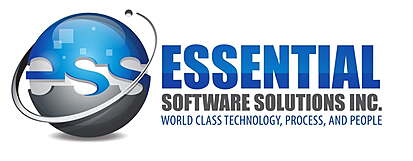8 Game-Changing Improvements Achieved from Picking The Right ERP
Manufacturing is a key pillar of Canada’s economy contributing $174 billion – that’s a massive 10% of the total GDP. The industry provides up to 1.7 million full-time jobs in the country. In this is huge industry sector, discrete manufacturing enterprises each have unique requirements and specifications. However, they all face a universal need for improved, enterprise-wide transparency and control. Another crucial factor is Supply Chain Management (SCM) which is vital in discrete manufacturing. The primary objective of SCM is to limit inventory, as holding on to it is expensive and an indicator of poorly organized Supply Chain Activities (SCA). It also estimates job requirements for better monitoring and management of operator and equipment workload. SCM also entails planning and documenting every step of the supply chain process to generate an accurate bill of materials, as well as tracking processes and generating progress reports. Due to the need for improved SCM with better transparency and control, a number of discrete manufacturers are implementing ERP systems to automate many administrative and operational processes and optimize productivity.
In fact, the ERP software market revenue in Canada is expected to reach $1,291 million by 2021. This indicates a growing number of discrete manufacturing enterprises are turning to ERP systems with Intelligent Automation (IA) capabilities to boost productivity and increase efficiency while saving time and money.
8 Game-Changing Improvements Achieved from Picking The Right ERP
Let’s take a more in-depth look at the difference implementing the right ERP can make to your discrete manufacturing enterprise.
1. ERP Assisted Make-or-Buy Procedure
With the right ERP in place you can estimate whether components need to be bought or made. Each stage of the assembly line process generates a bill of materials providing the latest material prices and labor costs for the component in question. Making the right choices at this stage can be highly cost-effective.
2. Improved Quality Control & Compliance
The ERP that you have chosen to implement must ensure that all safety and industry standards have been met. With the appropriate automated ERP system, you can proactively identify potential problems and alert the appropriate role. Ongoing monitoring and tracking provides feedback which enhances quality control.
3. Automatic ATP (Available to Promise) Date Capability
You can ensure that delivery specifications and due dates are adhered to by automated, ERP-generated ATP dates. These systems can assess raw materials available, labor and machinery capacity to accurately estimate lead times.
4. Automated Shop Schedule Updates
Industry-leading ERP systems that have Intelligent Automation (IA) capabilities are flexible and can reschedule production schedules according to current workload across the shop floor or assembly line. The system can intelligently consider all relevant factors, and handle the schedule update for the optimal outcome so that other delivery deadlines are not affected.
5. Document Direct Process Specifications
With Intelligent Automation (IA)-enhanced ERP systems your enterprise can eliminate the tedious, error-prone, time-consuming process of manually entering product specifications from engineering documents. A modern ERP can automatically read the documents using OCR technology and update the information reducing errors and accelerating operations.
6. Optimized Equipment Management
With smarter ERPs your operators can be informed in advance about upcoming work and which tools and work stations they will be required to utilize. This means they can be in the right place at the right time, eliminating delays. Technicians can also be kept informed of which instruments need to be recalibrated, serviced or replaced based on tracking usage through the ERP system. Thus, a proactive approach optimizes equipment management, reducing downtime and expediting operations.
7. Quick Machine-to-ERP Messaging
Employees on the shop floor waste a lot of time moving from one place to another in order to update machines and systems. ERP systems can accurately input these numbers in real-time directly from the machinery. This automation improves efficiency.
8. Accurate Supply Chain Data
It is imperative to have an accurate and real-time method to update inventory based on SCA. With real-time information on equipment and materials consumed, you’ll have greater confidence in purchase lead times aligning them with the current production pace. With real-time data functions can stay in sync and you can drive lean operations with optimal costs and faster production. A good ERP system will avoid excess inventory and also help you adapt quickly to any disruptions in supply or customer demands.
As you can see, the right ERP software for discrete manufacturers is an essential component of any modern-day manufacturing operation. Finding one that is the best fit for your specific needs can be a game-changer, helping your enterprise improve efficiency, productivity and outcomes.
Essential Software Solutions Inc. has Industry 4.0, ERP and Cloud expertise and over 4 decades of experience supporting businesses across Canada in expanding market share and boosting revenue. We can help identify the right ERP software for your organization’s requirements. Reach out to our team at ESS to find out more.
#ESS #ERP #DiscreteManufacturing #EnterpriseResourceManagement #EssSoftware











